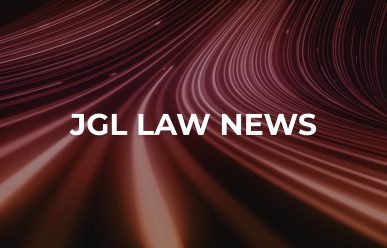In a recent interview with Westlaw Journal, Jay Holland discusses the “most robust fraud-fighting tool in the government’s arsenal: the False Claims Act.”
Westlaw Journals: Are companies and individuals in the financial industry frequent targets of the False Claims Act? What industries are frequently targeted?
Holland: Yes, the DOJ successfully uses the False Claims Act to target bad actors in the financial industry to recover misappropriated government funds. Most of these cases involve financial institutions that do business in the home mortgage industry. The Bank of America/Countrywide Mortgage $1 billion settlement is a prime example of this type of case, and the potential scope of a settlement. In that case, Countrywide (which was later purchased by Bank of America) was alleged to have falsified borrowers’ eligibility for Federal Housing Administration-insured home loans. By falsifying a borrower’s eligibility for FHA-backed mortgage insurance, the federal government carried the burden of paying hundreds of millions of dollars when ineligible homeowners inevitably defaulted on their mortgages. In that case, the federal government also alleged that Countrywide engaged in a scheme to over-value home appraisals to support loans that may have exceeded the actual value of the properties. Bank of America was forced to pay FHA $500 million for its losses, and devote another $500 million to establish a refinance program for Countrywide borrowers who were under water as a result of these practices and mortgage-bubble induced recession.
Westlaw Journals: Has the False Claims Act been used before in conjunction with the government’s TARP program?
Holland: Use of The False Claims Act has been successful in recovering funds that were misappropriated under the TARP program. One common scheme was for financial institutions to falsify the status of their financial condition in order to receive TARP funds. This type of fraud occurred in a $4 million FCA settlement in October of this year against One Financial, as well as a $2.4 million FCA settlement against Regions Financial Corp. Some banking institutions saw the TARP fund as a very attractive way to boost both their institutional and personal bottom lines — as occurred in the One Financial case. Although TARP emanates from the 2008–2009 financial collapse, it is certainly still likely that additional TARP cases are in the works (FCA cases stay under seal while the federal government investigates the claims) as the audits and investigations can take years, and the statute of limitations can extend to 10 years for the government.
Westlaw Journals: When the government brings a False Claims Act lawsuit, what types of damages/recovery can be pursued?
Holland: By statute, the False Claims Act will apply a civil penalty of anywhere between $5,500 and $11,000 for each false payment that the federal government makes, plus three times the amount of damages the government sustains because of the fraudulent claims for payment. 31 U.S.C.A. § 3729. Also, as the vast majority of these cases are brought by whistleblowers, called “relators,” under the statute, defendants are also liable for the attorneys fees and costs incurred by relator’s counsel. Criminal penalties and liability are also possible. When fraud is in play, it may not be too far of a bridge to gap to hold individual bad actors criminally liable. We are now seeing a government emphasis on exploring and pursuing criminal penalties as result of what has become to be known as the DOJ “Yates” memo. By that memorandum, DOJ has stated its policy to intensively investigate whether criminal charges are appropriate in fraud cases.
Westlaw Journals: What lessons can be learned from the settlements in United States v. Estate of Layton P. Stuart, No. 15-CV- 01044, settlement announced (D.DC Oct. 16, 2015), and United States v. $17,693,837.10 from John Hancock Life Insurance Policy No. XXX6473 et al., No. 13-CV-00409, settlement announced (E.D. Ark. Oct. 16, 2015)?
Holland: Do not assume that because your business is not technically in “government contracting” that you are beyond the reach of the most robust fraud-fighting tool in the government’s arsenal: the False Claims Act. If you are in the financial services industry, then it is highly likely that federal purse strings are attached in some way to your industry. As seen from the Stuart settlements, if FHA, Fannie Mae or Freddie Mac may ultimately be liable for a borrower default, and if the lender does not turn square corners, it may be liable for up to three times the government’s losses. That holds true as well for specially created programs like TARP. The business community as a whole needs to be aware that whenever it receives any funds or financial benefit from the federal government, they are exposing themselves to possible liability.
This segment originally appeared in the November 16, 2015 issue of the Westlaw Journal (pg. 15).

